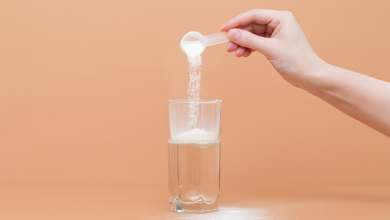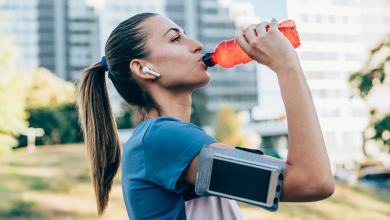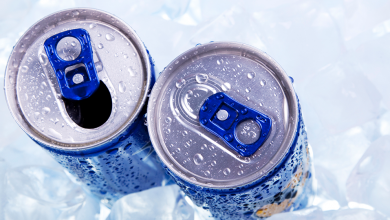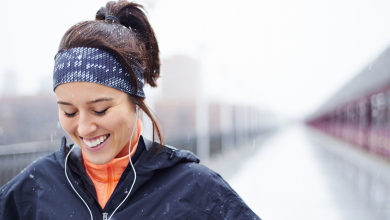How to Use Percussive Therapy Devices to Ease Sore Muscles
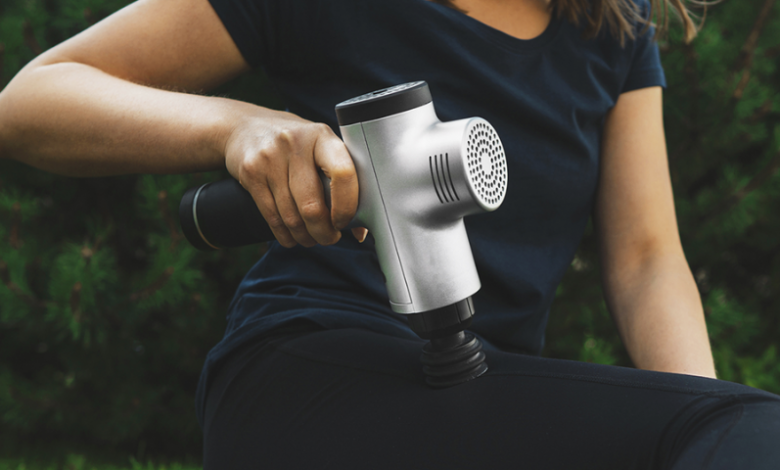
Looking for a quick and effective way to ease muscle soreness from a tough workout? Percussive therapy guns (or massage guns) mimic the striking maneuvers that massage therapists use to break up knots within muscle tissue. They’re easy to use for your sore muscles and can get you back to your workouts faster.
“My best advice is to start trying to use one,” says Carlos Teasdale, ATC, CSCS. “Once you do, I promise it will become a staple in your home and workout routine.”
Read on to learn more about percussive therapy devices and which ones are the best on the market.
What Is Percussive Therapy?
Percussive therapy, also known as vibrational therapy, provides rapid bursts of energy into the muscles with a massage gun that oscillates up and down.
“As an athletic trainer, I find vibration to help improve awareness and activation of the muscles you’re using it on,” says Teasdale. “I also find massage guns to have some analgesic [pain-relieving] effects.”
Teasdale mentions that percussive therapy lessens pain by increasing blood flow to the sore areas of the body, which can provide the following benefits:
- Reduce inflammation
- Alleviate muscle tension
- Break up adhesions in soft tissue
Percussive massage also acts as a light stretch for sore muscles, which improves recovery time. You can even use percussive therapy to warm up muscles before a workout, Teasdale adds. (But don’t use it as your only warm-up.)
Are Percussive Therapy Massage Guns Safe?
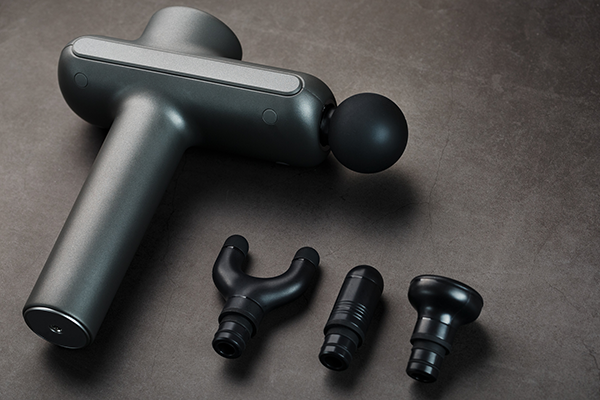
Absolutely! But Teasdale recommends following these tips:
- Use them on soft tissue only. “You should avoid bones as a rule of thumb, so never put pressure anywhere that is mainly bone,” Teasdale says.
- If you’re new to percussive therapy, go slow, then increase power. Similar to any myofascial massage (such as cupping or foam rolling), you need to ease into it to build a tolerance. If you focus on one area for too long before you are used to the device’s dynamic, it may cause bruising, so move your massage gun gently around tight muscles.
- Avoid sensitive areas with your massage gun like the face and head. During pregnancy, always avoid the stomach area. Teasdale also cautions to avoid any swollen areas and focus on the tissue above or below the swelling instead.
If you have a pre-existing condition, Teasdale suggests consulting your physician or physical therapist before using a percussive therapy massage gun.
Should I Use Percussive Therapy?
Percussive therapy via massage guns is popular because it offers a streamlined solution to break up pesky knots in your body. However, you can get the most out of your massage time by using it in conjunction with other recovery techniques.
“Combining modalities is always a great way to improve your recovery,” explains Teasdale. “Try foam rolling, stretching, and then massage-gun the areas you can’t get with the foam roller. Then stretch some more.”
Recent studies show that massage guns decrease muscle soreness recovery times for athletes. They are also safe to use for rehabilitation patients who suffer from trauma or surgery because they help strengthen the weakened muscles.
